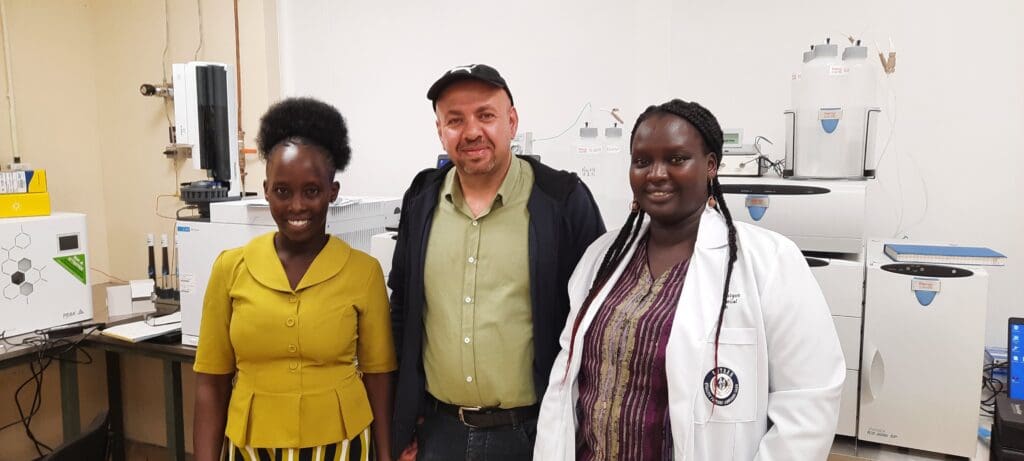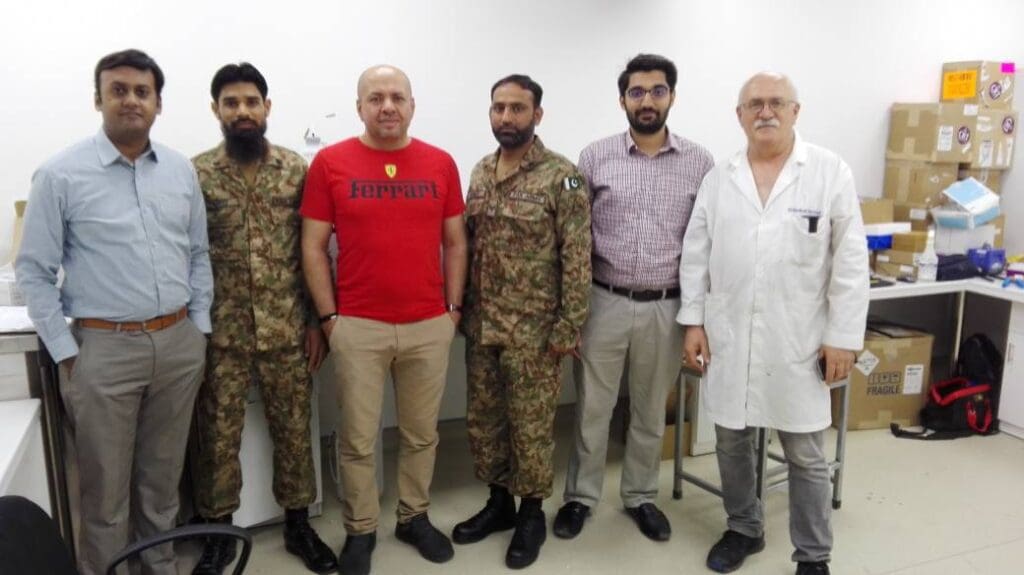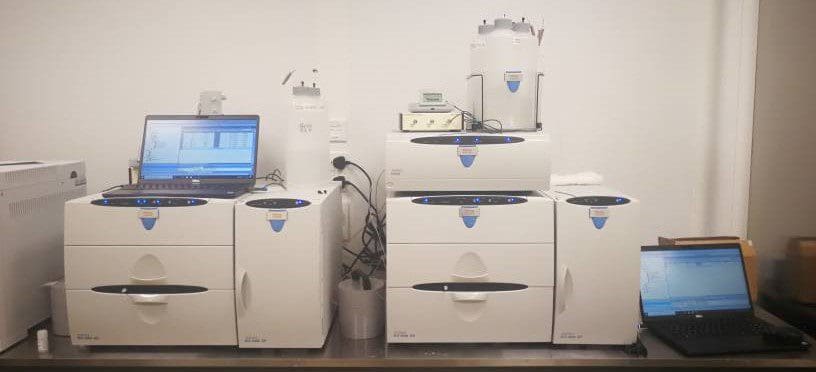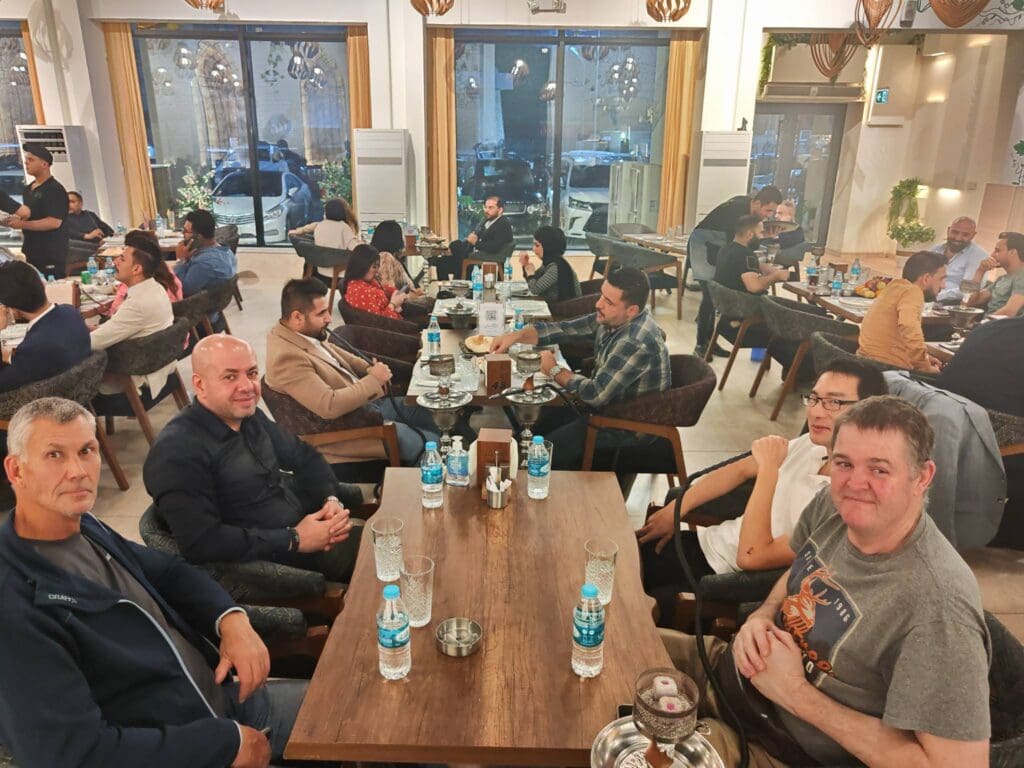Field Engineering in challenging and hazardous Environments
Advice for field engineering in challenging, extreme, or hazardous environments
Sakher Fadaleh has many years of experience in installing and qualifying medical instruments and machines. He has worked in many different countries and sometimes under challenging or extreme conditions or when there was limited infrastructure.
Previously, Sakher was a Technical Support and Validation Specialist for analytical research and medical instruments for Thermo Fisher Scientific. He managed a service team covering Africa and Asia. The service team installed Liquid, Gas and Ion Chromatography, Mass spectroscopy, Molecular, and Elemental instruments.
In this article, Sakher shares his experience and advice about working as a field service engineer under challenging, extreme or limited infrastructure conditions.


Climate
What are the challenges which field engineers face in terms of climate?
Sometimes the climate is extremely cold or extremely hot and there is no air conditioning system, or the system is not perfect.
Fortunately, I have never worked with very cold weather or sandy weather. Humidity has been a major issue for me. You cannot feel good outside at all, but inside if there is an air conditioning system nearby, or at least a fan, you will be OK. High levels of humidity mean that your entire body is wet, and you cannot breathe well.
How can these be overcome and coped with?
It is hard to overcome these challenges. If the weather is cold, you can wear heavy clothes but if it is hot there is nothing that you can do easily.
So, if you work in a very hot environment, my advice is that you must observe the following guidelines:
Hydrate your body by consuming as much cold water as possible.
Dress in natural cotton clothing.
Yogurt and white cheese are the ideal breakfast options because they are low in calories and high in protein.
Carry soft tissues with you wherever you go for wiping your body.
How do you cope with sweaty hands when handling equipment and instruments?
The best option is to wear gloves.
An example
What personal examples can you give?
The weather was very hot (Inside the lab the temperature was 35 degrees Celsius and outside more than 45 degrees Celsius) in Sudan, Khartoum City, and the air conditioning system was not operating well. At the same time, the heat output of the equipment increased the temperature inside the lab. I needed a normal temperature (20-25 degrees C) to get the best results from my instrument.
So, to get around this issue, I postponed my work until the evening when the sun had gone down and when the temperature was around 25 degrees C.


Infrastructure challenges faced in field engineering
What are the challenges which field engineers face in terms of infrastructure?
The first problem is with roads and electricity.
In some areas, the roads are in a terrible condition and unsafe for driving. For example, in Nairobi, the roads have a lot of potholes and are not straight, and there are no rainwater channels.
Other places have electricity supply which can be disconnected for hours at a time.
What advice would you give to other engineers for coping with roads and power cuts? How can you stay focused and not become frustrated? How can you ensure that the work is still completed?
The most important thing the engineer must do is to be patient and to wait and consider the situation.
If there is a problem with a road, you can change to another road; taxi drivers always have different options.
When there is a power outage, you must wait. Then if the power doesn’t come back on, ask the client to bring a generator. It is something they need to provide.
What other issues are there on the roads?
Often taxis are not in good condition and taxi drivers can be excessively fast and ignore traffic signs and road rules.
The other thing is police check points for security, sometimes you have to wait 10 to 15 minutes to start moving again.
Can you give another example of a situation you have been in?
I recall in August 2002, I was in Baghdad installing blood gas analysers in hospitals. I leased an apartment for my stay, but the power went out in the middle of the night. The room temperature was then 40 degrees, and I couldn’t sleep that night.


Security and safety in field engineering
You have travelled and worked as an engineer in places where security and safety are issues. Can you give examples?
For example, when you arrive at Baghdad airport and go outside, there is an airport shuttle waiting for you to take you outside the safety zone where no one can pass. After that, there are many drivers and private cars waiting to pick up the passengers. My advice is: do not go with them because you do not know if you can trust them. Instead, use only formal airport taxis. It is better if you ask your client to arrange taxis for you.
Because there is still the danger of a terrorist attack, you must remain in a secure hotel guarded by a security company.
By following these directions, you will be safe all the time.
What is your advice to other engineers who are going to travel in similar potentially hazardous situations?
The security issue is very important because it is your life that you must protect. Before traveling, you must research the security situation in the area where you will be staying. You must know where your hotel is located, whether it is in a safe area or not, and how far it is from your work location. If the transportation between the site and hotel is unsafe, you must find a security company to pick you up, as I did during my visit to Iraq-Basra. You should also be cautious about what you eat and drink; don’t just go to any restaurant you come across.
Advice and research
What advice would you give for how to research before your trip? How did you research and how did you make contacts?
This is a very good question.
For this type of business, you must have a good background in politics, religions, and social cultures. When you travel to a troubled country, you must be aware of what is going on inside it and the causes of that trouble. This will help you during your stay because it will prevent you from saying or doing something that is not acceptable to the people in that country. You can find all the required information on the internet and in the news. When you decide to travel abroad for a work assignment, there must be an organisation or corporation that will welcome you and supply you with the necessary contact information.
Comfort
What is your advice for engineers to keep themselves as comfortable as possible? For example, in terms of food, accommodation, hygiene, sleep, exercise, etc?
The most important thing is to choose a 5-Star hotel for your stay; if this is not possible, a 4-Star hotel will suffice.
The other advice I would give is:
Try to eat all of your meals in the hotel.
Keep a steriliser gel with you at all times.
Eat vegetables and fruit to stay active because you have a lot of work to complete in a limited amount of time.
Sleep at least 8 hours as your body requires rest after a long day of working and thinking.
Don’t try the nightlife because it’s highly risky and you could lose money.
Don’t trust individuals who offer trips or presents as they may not be genuine and may be trying to trick you.


The positives of the experience of working in challenging conditions in field engineering
What are the positives about working in challenging conditions?
This type of work has been really valuable experience that has taught me many things, including the following:
Completing assigned tasks on time in all situations.
Finishing projects in difficult conditions.
Patience and logical thinking to solve problems and obstacles.
Increasing my awareness of people and cultures around the world and making new acquaintances.
What does this type of experience lead to?
With this experience, you can work as a consultant in the future as a client will know you can cope with challenging conditions.
Further reading on field engineering
Working in the heat of the Middle East, Ossama Elgammal is a Service and Commissioning Engineer for tube filling machinery.
Staying cool when working as a Field Engineer


Responses